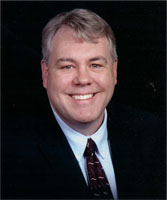Fraud Prevention & the Small Business | Fraud Detection
Below is a transcript of an interview conducted by business advisor John Ray. The interview emphasizes the importance of a strong fraud prevention and fraud detection program. Start a conversation with us.
Fraud and the Small Business: An Interview with Zane Kinney, CFE, Astinel Security & Forensics
Fraud is one of those issues which few small business owners want to think much about, because they view it like a natural disaster, in that it always happens to someone else. As with natural disasters or other unfortunate circumstances, fraud and embezzlement visits a small business owner when they least expect it.
We recently visited with Zane Kinney, a Certified Fraud Examiner with his own practice, Astinel Security & Forensics. Zane has seen and written about a lot of different fraud cases, and we thought you would enjoy and learn from the experience he has to share:
Q: Zane, thank you for joining us. Can you give us some background on you and your firm?
A: John, thanks to you and your readers. My entire professional background has been in the protection field. I have worked in law enforcement, loss prevention, corporate and physical security. Astinel Security & Forensics is a risk, security and fraud consulting firm. We respond to a fraud or embezzlement crisis in a business. More importantly, we educate business owners on fraud prevention and security vulnerabilities, and how to avoid becoming a victim.
Q: I’ve heard you say that the biggest fraud threats for a small business are usually the most overlooked and unexpected. Can you talk about that?
A: The dynamics of the small business is inviting for embezzlement. Most small business organizations lack segregation of their financial duties. The environment tends to be very trusting and employees are viewed as part of an extended family. The business owner is disarmed in a way. We often see where a long-time trusted employee, someone you would never expect, takes advantage of loose controls or a lack of oversight within the company. When this happens it can devastate the company emotionally as well as financially. In extreme cases, bankruptcy occurs.
Q: What does a small business owner need to understand about the psychology which drives the one person they would never suspect, a long-time trusted employee, to embezzle?
A: First, situations for people can change. For years the employee may have been stellar and certainly earned your trust. Perhaps a financial pressure has entered their life (domestic problems, overwhelming debt) or the greed factor, which has likely always been present, is given an opportunity to show its ugly side. Employers can do nothing to stop the pressures or the need/greed factor of what we refer to as the Fraud Triangle. Rationalization on part of the embezzler is also a part of the triangle. They may feel underpaid, overworked or perceive they have been wronged in some way. Rationalization is difficult to deflect; however, operating with integrity in your business is one way. If an employee views his company or its leadership as unethical, it gives an opening to commit fraud.
Q: Another situation I’ve heard you counsel caution on is the convicted embezzler who has “reformed” and is now telling their story. What gives you pause in these cases? Can you give an example?
A: There are too many examples of the “reformed” embezzler who travels out on the speaking circuit, cautioning business owner’s on the evils of fraud, only to repeat their behavior. Barry Webne is an example of someone who I personally heard give a lecture. We have another recent case here in Georgia involving a medical practice employee. Hiring a convicted fraudster and placing them back into a position of financial oversight, is akin to an alcoholic working in a bar. Many times the fraudster has an overwhelming charm and likability about them. They may even be forthright and tell their potential new employer about their past misdeeds. We all love stories of redemption; however, the caution is, don’t play amateur psychiatrist or criminologist.
Q: OK, Zane, you’ve warned us about everyone from trusted, long-time employees to convicted embezzlers. What’s a business owner to do, and who can they trust?
A: It’s okay to trust, but you must take proper steps in building a comprehensive anti-fraud program. It begins by clearly communicating that fraud is not tolerated and there are severe consequences for doing so–this should be in writing. As business owners, we must conduct ourselves with integrity. No one wants to work for a hypocrite. Then you must eliminate or reduce the opportunity for fraud. Opportunity is the final piece of the Fraud Triangle. Segregate the financial duties and provide oversight of your assets. There must be a perception that fraud will be detected. Having random audits and inspections are helpful. Don’t rely on your CPA to find fraud. CPA’s do important work, but they don’t typically look for fraud. As your company grows, consider using a data analytics program to help find anomalies.
Q: Zane, as a Certified Fraud Examiner yourself, what does a CFE do and when does it make sense for a small business owner to employ one?
A: CFE’s have an expertise in financial transactions, investigations, criminology, ethics and law. We are specifically trained to look for fraud and embezzlement. I recommend all business owners have a CFE examine their operations for vulnerabilities. The median loss due to fraud is now at $145,000 per incident. It’s so much easier to prevent fraud than respond later. Hope and trust are not effective strategies. Certainly if they have a suspicion, act on it. Having an independent review is very beneficial. We also love giving out good news. I enjoy it when I can give a business a good report.
Q: Thanks for joining us, Zane.

